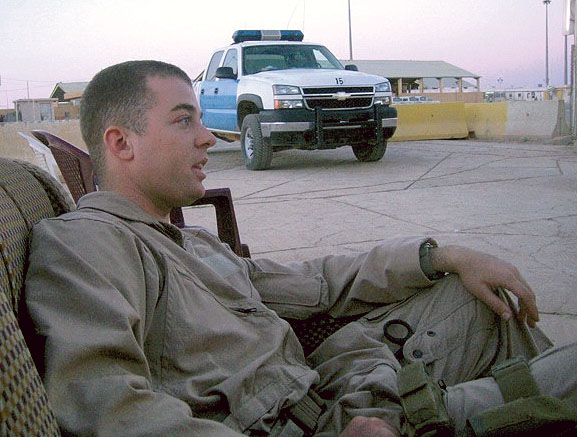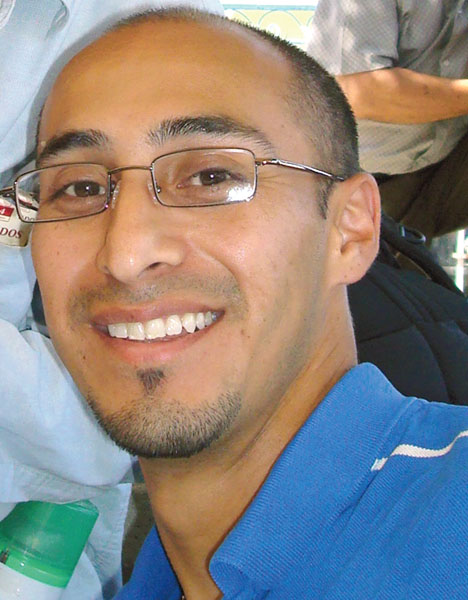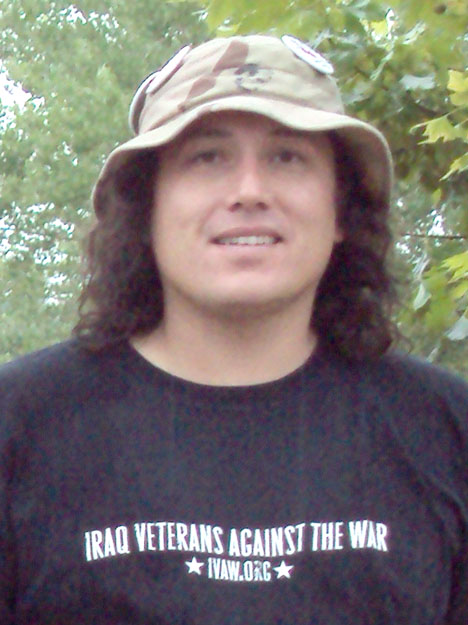Joseph Callan was shocked and saddened when he heard about the Jan. 13 death of Iraq veteran Kenneth Ellis III. And he was angry. Callan is a combat veteran who did three tours of duty in Iraq, including the initial invasion of the country. He was an infantryman, but he left the Marine Corps in early 2008 and came back to Albuquerque. "I had every intention of being in the Marines for 20 years and retiring," he says, but he couldn’t live with his conscience. "I couldn’t believe what we were doing." When he returned to civilian life, he says he felt isolated and didn’t have support from the Department of Veterans Affairs or the military. "I started to get angry." He was diagnosed with post-traumatic stress disorder.So was Ellis, the man who died in front of the 7-Eleven at Constitution and Eubank last week. The 25-year-old was pulled over because his car had the wrong plates, according to news reports. He got out of the car and put a gun to his head while he was talking to his mother on his cell phone. Police shot him after he refused to put the weapon down. Ellis had been part of an inpatient PTSD program at the VA Medical Center. Sonja Brown, spokesperson for the VA, would not confirm or deny Ellis was kicked out of the program, as has been reported. She wouldn’t comment on Ellis’ case due to patient privacy laws."It’s unbelievable the number of systems that failed this man," says Callan, "my brother in arms who walked the same streets in Iraq as I did." The high suicide rates of veterans and active-duty military members infuriate Callan, who acts as the West Coast field organizer for Iraq Veterans Against the War. But he knows something of the psyche of a returning soldier. "It’s not just the traumas they received while in combat," he says. "But you come back and realize that there is no Santa Claus. Most people join the military with the best of intentions. Maybe there’s a ‘money for college’ here and there. But there’s patriotism and pride. And that is what is really taken advantage of and stomped all over in this process." After Callan was diagnosed with PTSD, he was asked to attend a coping skills class and a relaxation class. The trouble was the courses were held in the middle of the day, working hours for a man financially supporting a family. "The young men and women are left alone and feel they have no other options," he says. "And it’s happening all over the country. Veterans attempt to kill themselves every day as a direct result of having gone to war and having served our country." It’s different for Iraq veterans, he says. "Guys fighting Nazis in Germany probably believed they were helping to save the world," he says. "We come back and face overwhelming evidence to the contrary." It’s a huge blow to a person’s psyche. Soldiers are confronted by unnatural and unbelievably violent acts, he says. "But you do those things to help the brothers and sisters by your side." Once cracks appear in the reasoning, he adds, the psychological damage is immense. Also, like Vietnam, Iraq doesn’t have a front line, Callan says. "There’s no, Here’s where the fight is. Any person on the side of the street could pull out a weapon, or explode, or signal to someone to blow up the road that you’re driving on. There’s no uniformed enemy; no, Here is our side and your side."Micah Shaw is also a veteran and the local chapter president of Iraq Veterans Against the War. Chapter leaders from around the country were in town for a national strategy retreat when Ellis died. So the group held an impromptu vigil at the site of his death the following Saturday night. Ellis’ family members also attended. "It was somber," Shaw says. "But it was important. All of us have been to far too many vigils and memorials and funerals and things for suicide and combat deaths." There is not enough help for veterans, he adds. "The VA, it’s not entirely their fault. They’re overrun. It’s the often overlooked, hidden cost of war—that people come back who are alive and otherwise well, but they really need all our help with their emotions and things they’re dealing with."Shaw says he’s disappointed with the VA and with police. "Unless he [Ellis] specifically attempted to kill a police officer, I see no reason to kill him." Albuquerque Police Department spokesperson Nadine Hamby says a routine investigation into Wednesday’s shooting is ongoing, and she’s not at liberty to discuss it. Once it’s complete, it will go to District Attorney Kari Brandenburg’s office for review. "If the case goes to the grand jury, the grand jury deems if it’s a justified shooting," Hamby says. Romeo Rocha, also a veteran and Iraq Veterans Against the War member, says Ellis’ death may bring the issue of PTSD back into the public consciousness. "It’s still showing up, but it’s not making headlines anymore." Rocha says he hopes Ellis’ death can become a catalyst for positive action. "His death, and him being a post-9/11 veteran and having PTSD, I think a lot of good is going to come out of what happened."Iraq Veterans Against the War is a vital resource for returning military members, Shaw says, because it supplies a network of veterans with similar experiences. "People that haven’t been there just don’t understand." But it’s hard, he says, to be a veteran against the war. If you acknowledge the war is wrong, he continues, you acknowledge your participation in it is wrong. "That’s a huge step to take for a lot of people."Having people around you who understand is a necessary supplement to the therapy a veteran gets professionally, Shaw says. "I wish I had found this guy [Ellis] before," Shaw pauses, "but I can go through What Ifs all day long. I’ve been to Iraq."
Contact Joseph Callan at zkjcallan@ivaw.org or Micah Shaw at micahshaw@ivaw.org







